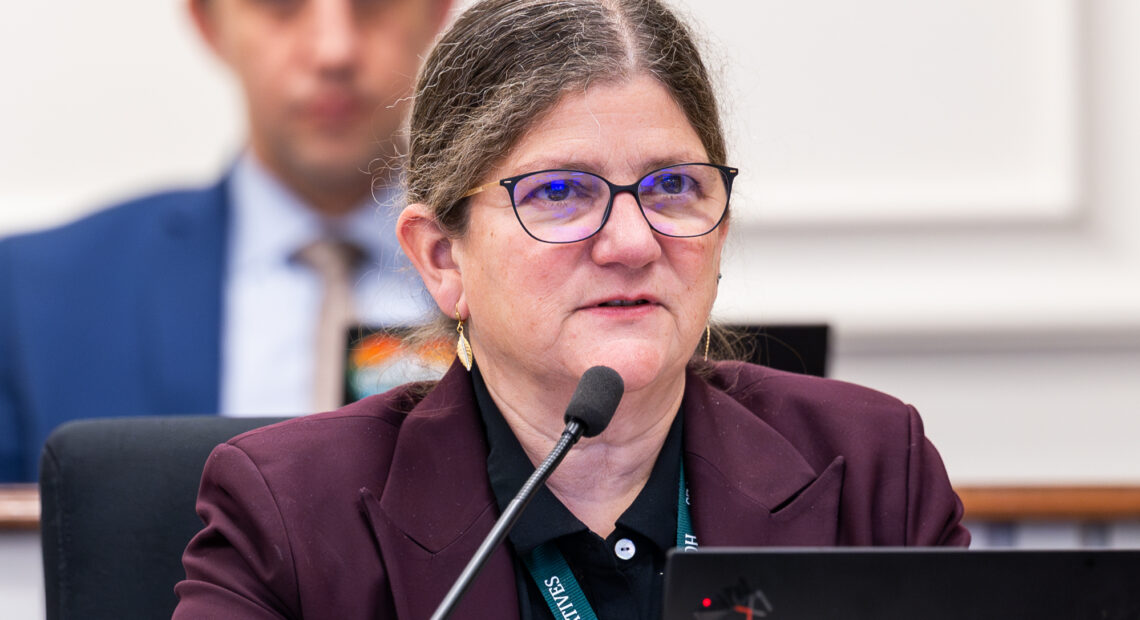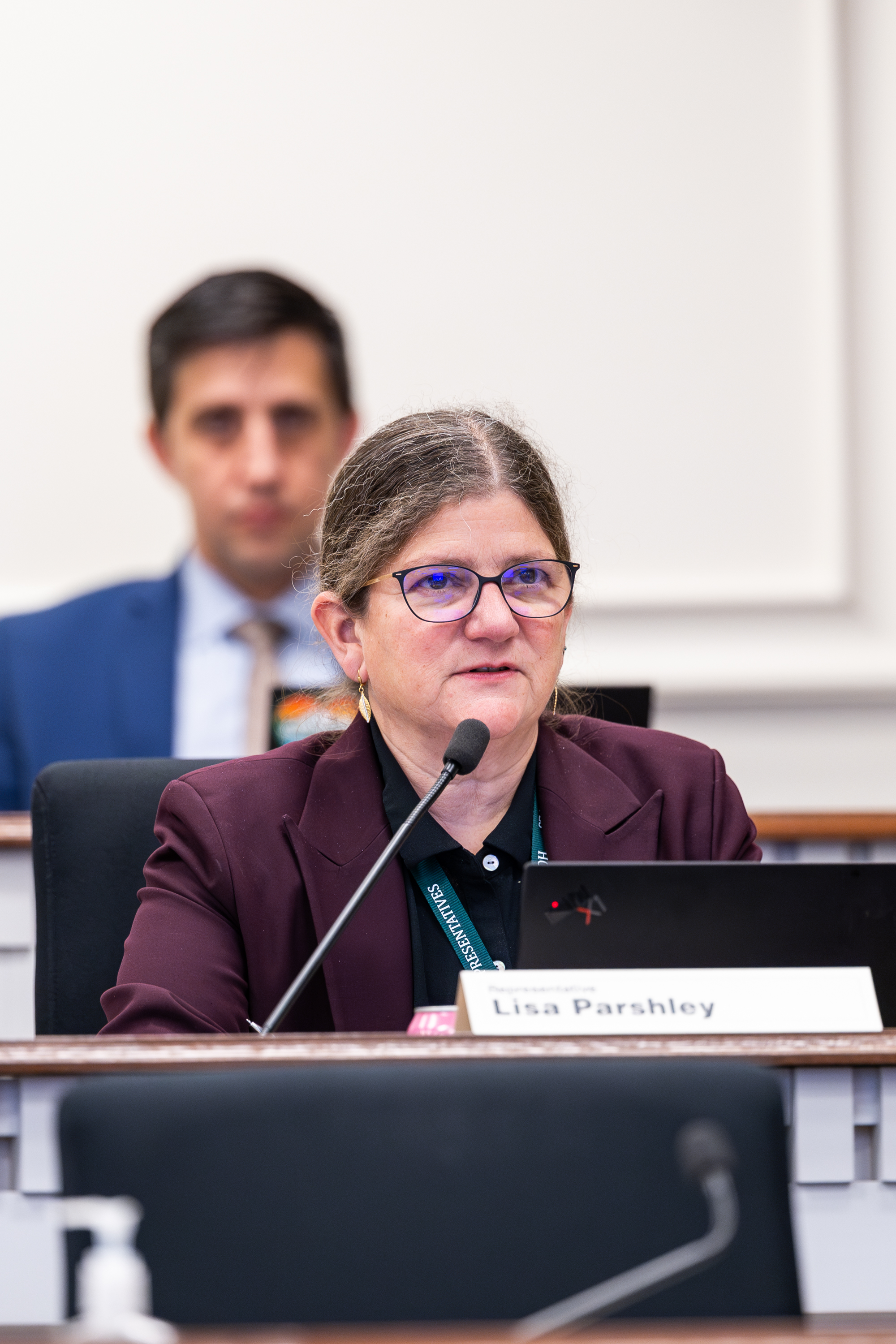
Washington bills attempt to give public workers power to bargain on AI
Listen
Read
There are only so many things employees get to have a say over in their jobs. Which laptops or messaging app your office uses might not be your call.
For a while, decisions on the use of technology in the workplace have been up to management for public workers in Washington state, thanks to a law passed in 2002. But now, some lawmakers want to pass an exemption that would allow public sector employees to bargain on one broad and ever-changing technology — artificial intelligence.
Here’s a resource that answers some basic questions about what AI is.
With both a House and Senate bill, lawmakers say they want to make this change to give workers a seat at the table.
“ The public sector workers, the labor unions don’t want to stop AI, they just want to have a say in how it’s implemented,” said Rep. Lisa Parshley, the primary sponsor of House Bill 1622.
That bill has moved further along this session, with a companion bill, Senate Bill 5422, sitting in committee.
Parshley and others argue that when the law giving management decision-making authority on the use of technology in the workplace was passed, the technology it was referring to were stagnant pieces of equipment, like pagers and flip phones.
Now, with the many possibilities of AI, lawmakers want to ensure that workers get a say in how the technology could interact with and impact their jobs.
Many labor unions are in support of the bills. Public sector AI is included in the Washington State Labor Council’s legislative priorities for 2025. The council states that “AI is unprecedented in its scale, impact, and capabilities; its use should be bargainable to protect workers.”
Cherika Carter, who is the secretary-treasurer for the Washington State Labor Council and is part of the state’s Artificial Intelligence Task Force representing labor, shared her support of the House bill at a public hearing in the House’s labor committee on Feb. 5.
“ Ultimately, it will benefit workers, public employers, and the people of the state alike to have worker input regarding AI and how it’s adopted,” Carter said. “The best experts in what will help versus harm our state services are the very people who provide them, the workers.”
In the December 2024 Impact of Generative Artificial Intelligence on the Washington State Workforce report, the workgroup recommended input and feedback from employees to reduce potential negative impacts of generative AI.
However, the workgroup did not agree on the extent of collaboration in decision making. Labor representatives said for employees to be involved in any generative AI decision making, ergo bargaining over anything from data standards to training programs. However, the Washington Office of Financial Management State Human Resources division said the employer should disclose decisions around generative AI, and labor could file a demand to bargain over it.
During the Feb. 5 hearing, Carter and others shared concern that state agencies may choose to replace workers with AI.
But it’s not just the possibility of job replacement that has folks pushing for this law to change.
During the hearing, Joey Hicklin, an electronics engineer, web developer and former IT administrator, said workers are best positioned to understand how these data should interact and inform these tools.
“Without direct input from frontline workers, agencies are likely to implement AI tools that generate inaccurate outputs, ultimately eroding public trust in government institutions,” Hicklin said.
But not everyone supports the House Bill.
“ We are concerned about this bill because we feel like it significantly impairs the management right to make a business decision about whether or not something is appropriate for that city,” said Candice Bock, who’s from the Association of Washington Cities. That is a nonprofit group that represents Washington’s cities before the state Legislature.
Bock said they want to see this decision stay at the city management level. She said doing more bargaining would drive up costs for city government.
Bock also said there is already the ability for public employees to bargain on anything that impacts wages, working conditions and hours.
In response to whether the current law gives the opportunity for bargaining, Parshley pointed to the 2002 law.
“ Management was specifically given technology, and management will likely interpret AI as part of the technology, which means it cannot be bargained on,” Parshley said.
According to Kati Durkin, a lobbyist for the Washington Federation of State Employees, a union for Washington public workers, that does seem to be the case. In recent bargaining with the state, Durkin said the state won’t discuss AI issues with employees because of this law.
“This law specifically was their excuse every time a state union has tried to talk about it at the bargaining table,” Durkin said.
She said that won’t change unless the law does, which she is advocating for to give public employees the same power that represented private employees have. There is no technology exemption for bargaining for private companies.
“This means that public servants who have dedicated their lives to serving Washingtonians are far more vulnerable to the possible impacts of AI in the workplace than our private sector counterparts may be,” Durkin said.
There are ways that state agencies are already using AI to assist in their work, like the Washington State Department of Natural Resources which uses AI to help detect wildfires.
That’s one way AI is helping the Washington workforce. But, Durkin said concerns like increasing workloads, the possibility of tracking employee data, or the cost and ethics of developing programs, mean that there should be an exemption for employees to bargain.
“ If we wait until it’s really obvious how it’s going to be later, it is going to be too late to get ahead of unintended consequences,” Durkin said.
















